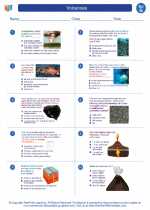Volcanoes -> central nervous system
Central Nervous System
The central nervous system (CNS) is a complex network of nerves and cells that are responsible for processing and transmitting information throughout the body. It consists of the brain and spinal cord, which work together to control most functions of the body and mind.
Anatomy of the Central Nervous System
The brain is the command center of the CNS and is responsible for processing and integrating sensory information, initiating voluntary muscle movements, and regulating various physiological functions. It is divided into different regions, each with specific functions, such as the cerebrum, cerebellum, and brainstem.
The spinal cord is a long, thin, tubular bundle of nervous tissue that extends from the base of the brain and is protected by the spinal column. It serves as the main pathway for nerve impulses to travel between the brain and the rest of the body.
Functions of the Central Nervous System
The CNS has several important functions, including:
- Processing sensory information from the body and the environment
- Initiating voluntary and involuntary responses
- Regulating bodily functions, such as heart rate, breathing, and digestion
- Controlling movement and coordination
- Regulating emotions, thoughts, and behaviors
Study Guide
Here are some key concepts and terms to focus on when studying the central nervous system:
- Structure and function of the brain
- Regions of the brain and their specific roles
- Functions of the spinal cord
- Neurons and their role in transmitting information
- Importance of the CNS in controlling bodily functions and behavior
Additionally, it's important to understand the connections between the CNS and other systems of the body, such as the peripheral nervous system and the endocrine system.
Be sure to review diagrams and illustrations to visualize the anatomy of the CNS and how different regions are interconnected.
Finally, practice applying your knowledge by answering questions or solving problems related to CNS functions and disorders.
Understanding the central nervous system is crucial in comprehending how our body and mind function, and it provides a foundation for further studies in neuroscience and related fields.
.








